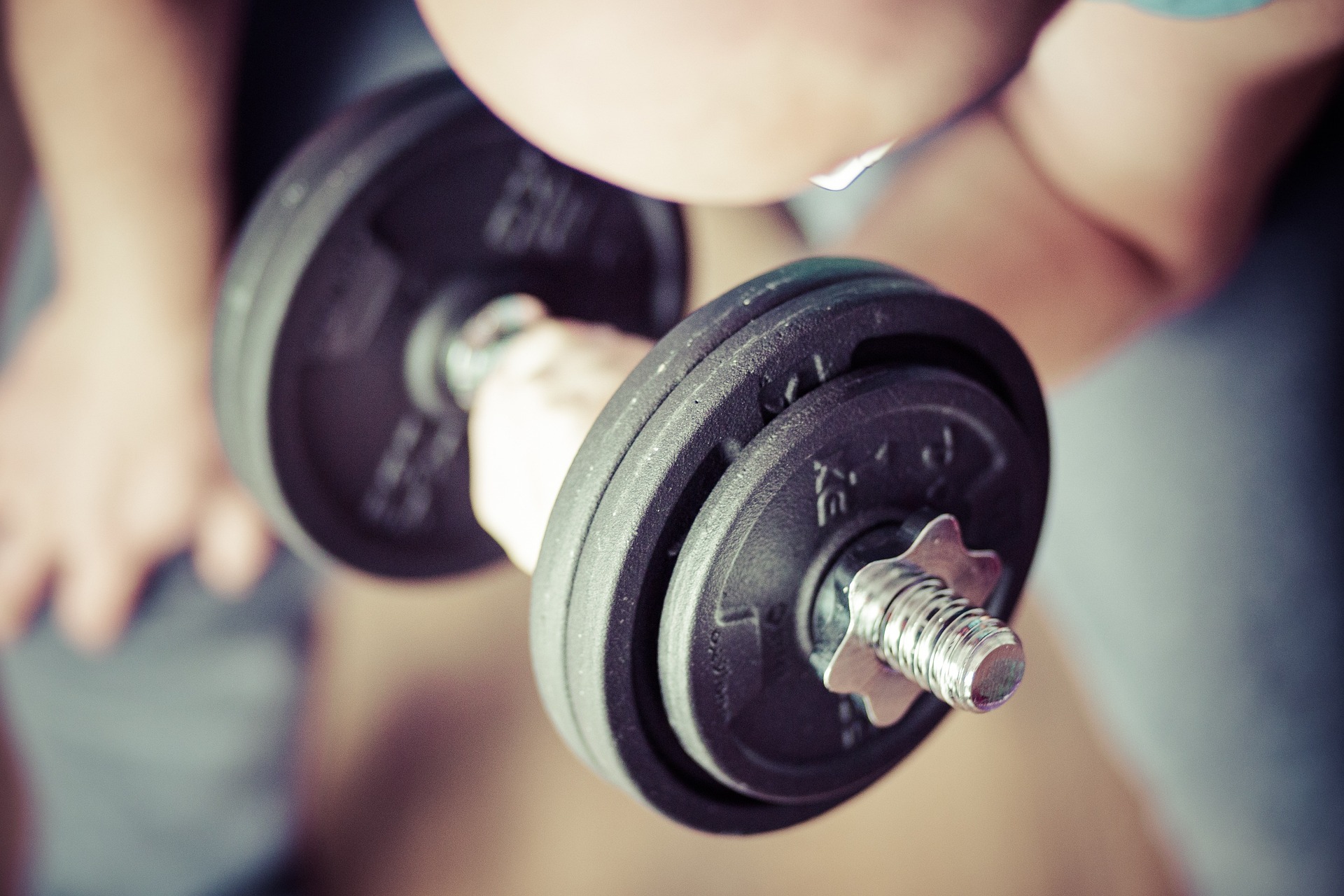When we think of any kind of physical exercise, most of us understand the importance between nutrition and training. However, many people do not fully appreciate how important our nutrition is for strength training, in particular. By following a balanced diet, you can boost the effects of strength training and see better results instantly. In this article, Human Strength Hub explores the various nutritional requirements associated with strength training.
So, how does strength training affect nutritional requirements? Strength training is affected by nutritional requirements such as:
- Energy intake
- Macronutrients, such as proteins, carbohydrates and fats
- Hydration
Effective strength training relies entirely upon a healthy nutrition plan that incorporates a varied and balanced diet to maximise results.
Keep reading to learn more about how to create a nutrition plan for strength training.
How Strength Training Alters Nutritional Requirements
Whilst hugely beneficial to all individuals with different fitness levels and goals, strength training by itself is not effective. The truth is, for any type of body composition change, such as losing fat or gaining muscle, nutrition is absolutely key. Everything comes back to what we eat. Truly effective strength training relies on a healthy nutrition plan and appropriate pre and post-workout fuel, all designed to maximise results. So, even if you are going to the gym regularly and training hard, you will not see many results if you are not eating the right kinds of foods. You could say, training only stimulates progress, whilst nutrition is key to facilitating this progress.
Generally muscle gains happen slowly, however, with the right diet of healthy eating, you will hit your strength goals sooner. An effective nutrition plan includes:
- Adequate energy (calories)
- Macronutrients (proteins, carbohydrates and fats)
- Hydration
Remember that all of these factors are customised according to the intensity, duration and format of the training program as well as to the specific individual. Each of these elements can either positively or negatively affect preparation for, and recovery from, moderate to intense training sessions. If followed rigorously, these factors can significantly impact the success of your strength training goal. In fact, without an adequate meal plan containing enough calories to support a strength-training program, clients may be faced with loss of muscle mass and bone density, increased fatigue, injury, illness, nutrient deficiencies and a longer recovery process.
How To Create A Nutrition Plan For Strength Training?
So, you may be wondering how to create a balanced nutrition plan for your strength training program. Below, Human Strength Hub delves into the key attributes of an all-rounded nutrition diet for effective strength training:
Protein
Protein is crucial for those carrying out strength training because the intensive exercises are very demanding on the body. This leads to the breakdown of muscle tissue, which results in microscopic tears in the muscle that require repair and rebuilding.
This is where protein comes in, or more specifically, amino acids that are synthesised by the body or from nutrients. These amino acids are directly involved in the repairing phase. As a result, strength athletes require higher protein intake than the average person. Adequate protein intake for athletes is a must to ensure constant recovery from their training. Amino acids are critical to maximising muscle protein synthesis (MPS) and therefore important to muscular growth and development.
So, how much protein is needed? Whilst it is dependent on many different factors, such as an athlete’s calorie needs and exercise intensity, a rough guideline is 1.6g to 4g per kg bodyweight.
Vegetables
The health benefits of vegetables are commonly known and promoted. This is because vegetables are full of:
- Vitamins
- Minerals
- Trace minerals
- Fibre
- Prebiotic
- Polyphenols
- Flavonoids
- Chlorophyll
Vegetables also help with satiety and vitality. Whilst not essential, the scientific and empirical evidence for vegetables is crystal clear, eating vegetables is fantastic for you.
A new study has also found that regularly eating leafy greens can boost muscle function. In this experiment, participants who ate the most nitrates (such as spinach, kale and lettuce) had 11% stronger lower limb strength. So remember to get those tasty greens in!
Fats & Carbohydrates
Historically, there are two groups of fat loss diets, high fat, low carbohydrate diets and high carbohydrate, low fat diets. Research has shown that both types of diet are effective, however, it will depend on the individual. Always think about which diet you feel better on whilst training. So, let’s take a closer look into both of these food groups:
Carbohydrates play a key role in the diet of any athlete. The type of sport and frequency will determine the volume of carbohydrate intake. For example, bodybuilders and rugby players will need higher levels of carbohydrates than a powerlifter or sprinter because they need more fuel to sustain their longer exercise and to increase strength and size. Adequate amounts of carbohydrates in a balanced diet also results in better muscle recovery and growth, which is imperative for strength training.
A common misconception surrounding carbohydrates is that they are wholly bad for us, however, this is certainly not the case. It all depends on what kinds of carbohydrates you are consuming. It is about working out how much you deserve and need in your diet. For the average client, it is one meal every 7 days. For example, some steak with potatoes and a dessert on Saturday night. However, depending on the 5 factors (outlined below), your carbohydrate intake might go up to 400g of Maltodextrin after every workout and 2 bowls of rice per day, every day. It is all about working out what’s best for you. The five factors that regulate your carbohydrate intake are:
- Training volume
- Body fat percentage
- Muscle mass
- Subscapular skinfold
- Supra-iliac skinfold
With this data, you can adjust your carbohydrate intake to achieve maximal gains. For example, having carbohydrates too early will slow down or even reverse your progress whereas not consuming enough when you need them, will lead to being lean but small.
Fat is also important because it provides essential fatty acids for general health, support to anabolic hormones and aids in the digestion and absorption of fat soluble nutrients. This means that a moderate amount of healthy fats can prove beneficial in an athlete’s diet. Here are some of the other significant benefits of fats:
- Improved athletic performance
- Lower total blood cholesterol
- Reduced inflammation markers
- Improved insulin sensitivity
- Improved blood pressure
Diets rich in polyunsaturated fats can also help spare muscle glycogen and potentially increase the time it takes to reach muscle exhaustion.
To find out more about fatty acids, take a look at our article on our supplements website, ‘What Are The Benefits Of Fish Oil and Omega 3?’
Hydration
Adequate fluid intake before, during and after exercise is important for health and optimal performance. Dehydration actually decreases exercise performance. In the hours after exercise, clients should aim for approximately 16 to 24 ml of fluid for every pound (0.5 kg) of body weight lost during exercise to replenish fluids.
Another hack is to kickstart your day with a glass of water containing lime (lemon) and salt as it boosts energy, immunity, gut health and decreases stomach fat.
How Much To Eat When Building Muscle
When building muscle during strength training, your body needs more fuel than when it’s maintaining body composition. What surprises most people is finding out that the more you eat, the faster you will lose body fat and gain muscle mass. This is because the extra calories you consume will go into muscle development, not fat, as long as you are working out in the right way. Whilst calorie balance is a somewhat valid concept, it is too narrow minded for an accurate representation of how the body works.
At Human Strength Hub, we are constantly producing before and after results where clients lose body fat and gain lean mass at the same time by eating lots of good food. The specific amount of calories an individual needs per day when working out and gaining muscle will vary. The most important message to take away is to eat plenty of good food as it can be one of the best investments in your body, wellbeing and energy levels. Grass fed meats, wild fish, organic vegetables and filtered water is a great place to start.
Best Muscle Building Foods
Here are some suggestions of high-quality protein rich foods which also contain other nutrients, ideal for strength training:
- Eggs
- Chicken
- Lean beef
- Cottage cheese
- Salmon – This fatty fish is rich in both protein and omega 3 fatty acids, which may contribute to muscle growth.
- Beans – Black beans, kidney beans, pinto beans, and other varieties are a great lean protein source. They also contain a lot of vitamins, minerals, and fiber.
- Tofu – Made from soybeans, tofu is an important source of protein for vegetarians and vegans and is also rich in calcium.
- Tempeh – This fermented soybean product is less processed than tofu and so retains more micronutrients whilst also providing vegan protein.
- Greek yoghurt – Yoghurt is a great snack and smoothie ingredient, but choose Greek yoghurt for more protein.
- Tuna
- Protein powders – While whole foods are always best, protein powders can be a good way to add in extra grams per day. *For more inspiration, take a look at our top quality sports performance supplements at Human Performance Hub.
- Quinoa
- Brown rice – Brown rice has not been refined like white rice, so it contains more nutrients and protein.
- Peanuts
- Nuts and seeds – Add a variety of nuts and seeds, including almonds, cashews, walnuts, sunflower seeds, pumpkin seeds, and others, for protein, carbohydrates, and micronutrients.
Functional Nutrition At Human Health Hub
Now that you understand the importance of quality nutrition for strength training, why not take a look at Human Strength Hub’s functional nutrition consulting services. The main aim of this service is to improve cellular function to optimise your overall health and improve performance
Our programs consider a number of factors including lifestyle, nutrition, genetics and the notion that each and every client is unique. This approach allows us to completely tailor your healthcare to fully optimise your health, performance and body composition in a way that works for your individual circumstances.
Get in touch today to find out more about our nutrition programs or book a free consultation call to find out how we can help you.





